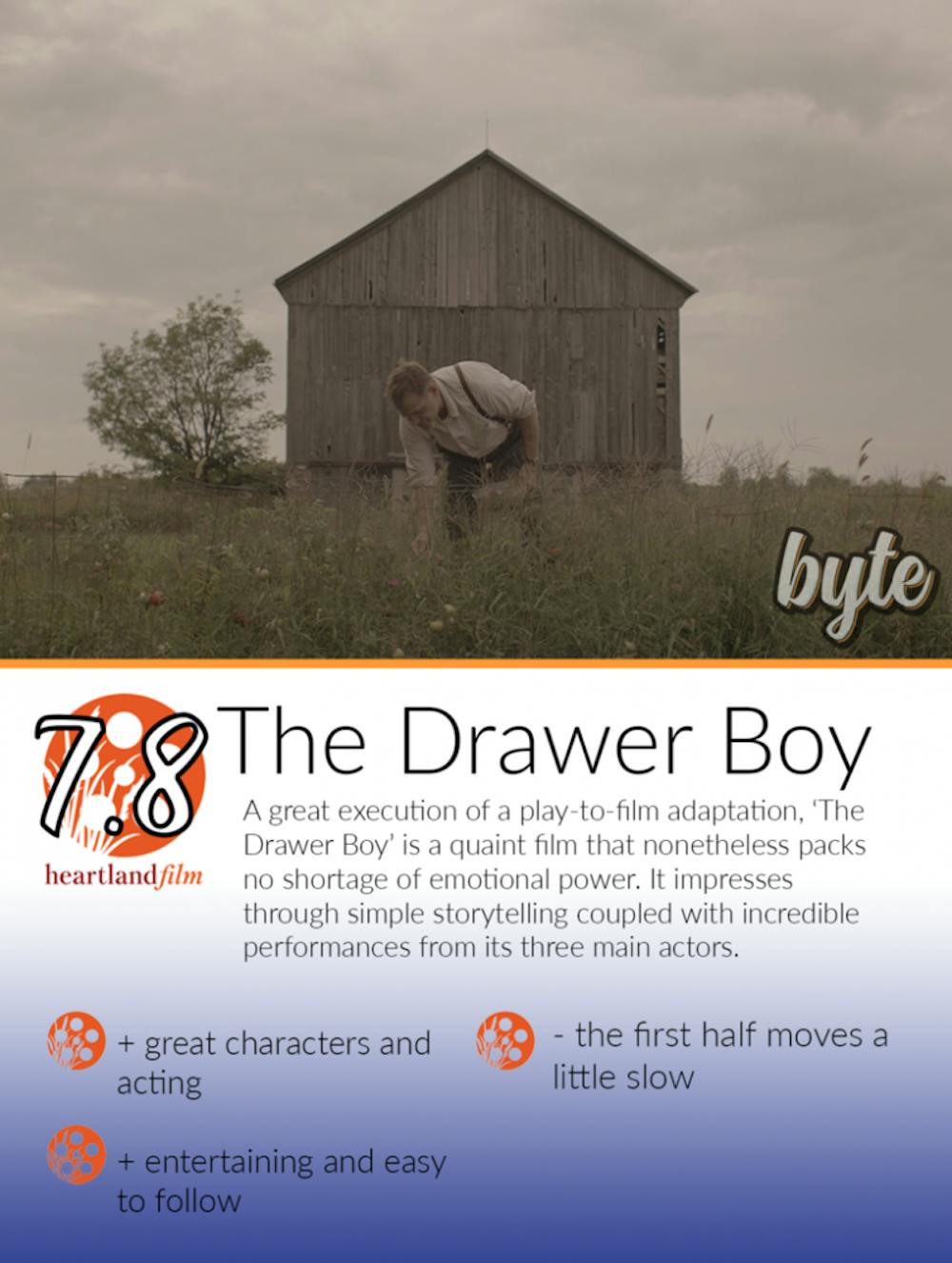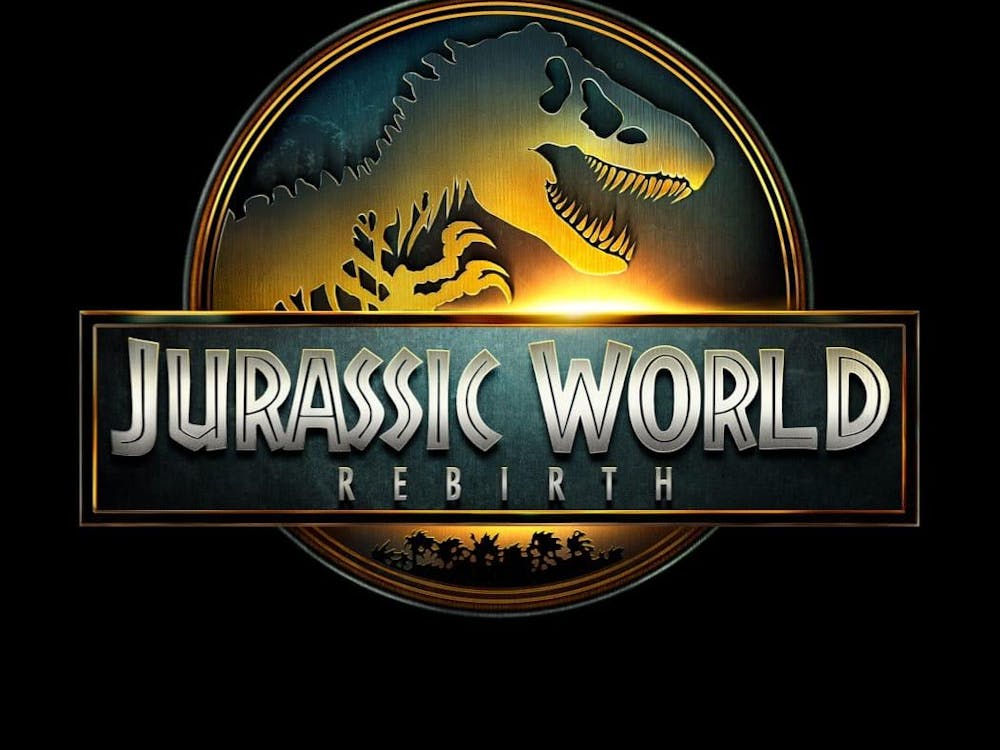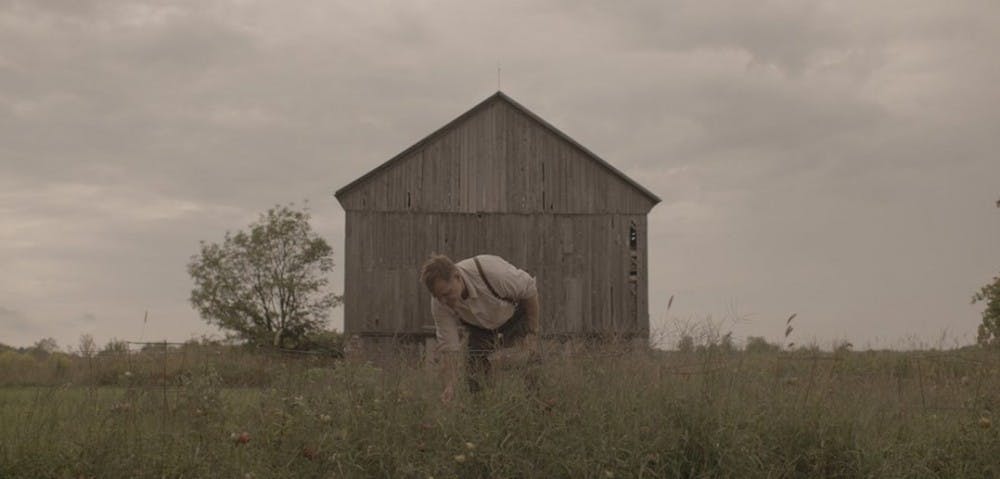Making a movie based on a play is a difficult task. Generally, a movie gets a lot of its power from the action, the music and the visuals. In a play, however, the power largely comes from the dialogue. The team behind the film adaptation of The Drawer Boy is well versed in theatrical productions, but how do their skills translate to this mixture of two storytelling arenas?
At the start of The Drawer Boy, a strange-looking boy arrives at a house in the middle of nowhere. He knocks on the door, introduces himself as Miles and explains that he is an actor trying to write a play about farmers. He asks for a place to stay and an opportunity to watch them do what they do. The man at the door says he’ll have to ask Morgan, the other guy who lives in the house, but then he shuts the door and leaves him outside to wait indefinitely.
The next day, in an attempt to start learning their ways, Miles tries to use Morgan’s tractor and ends up injuring him almost immediately. Miles suggests that maybe he should just watch from now on, but Morgan insists that he isn’t getting a place to stay unless he helps out. Upon getting to know the farmers further, he learns that the man who originally answered the door was Angus, who has short-term memory loss due to an injury from the war.
One night, Miles records Morgan telling Angus the story of the war, which includes such characters as “the drawer boy” and “the tall girls”. Miles performs the entire story as a monologue for his collective, which angers Morgan much more than expected. Morgan sees it as a story between him and Angus, and he retells it often to remind Angus of their past. The uncovering of the truth behind its details is the primary mystery of the film.
Although The Drawer Boy may seem a little bit slow-paced at first, it spends most of its buildup time going very in-depth into its main characters’ lives. The climactic conversation at the end of the movie is incredibly emotional, and it wouldn’t have nearly the same effect if the audience were not so intimately familiar with the characters by the time it comes around.
This film only has three main actors, namely Jakob Ehman as Miles, Richard Clarkin as Morgan, and Stuart Hughes as Angus. Though the story is technically told through the eyes of Miles, Stuart Hughes does a fantastic job in gradually shifting the focus of the story to Angus as it moves on. He is dry when answering questions, but excitable in certain moments and even capable of great emotion at other times. Angus is a very unpredictable savant-like character almost in the vein of Rain Man, but Hughes makes every twist and turn of his personality feel necessary and natural.
The urgency of moving The Drawer Boy from stage to screen may seem a bit dubious to some, but the turnout really isn’t so bad. The film medium allows for plenty of rural imagery that is impossible in play form, and it also lets the audience experience the pain of the farmers’ cows up close as Miles hilariously sympathizes with them. There are even some significant changes from the original 1999 play that make a pretty big difference in the way the story is told.
So even though there are a few moments in The Drawer Boy that test the viewer’s patience, they are few and far between and they certainly don’t ruin the otherwise immense charm of the film. In contrast with many of the ambitious multifaceted films that were shown at Heartland Film Festival this year, The Drawer Boy tells a simple story and does it very well. See it if you get a chance and learn why its US premiere won Heartland's $3,500 Best Narrative Premiere Award.

You can follow the film on Facebook, Twitter, and its website.
Featured image from IMDb
For more entertainment related content, visit us at Byte Bsu!



















